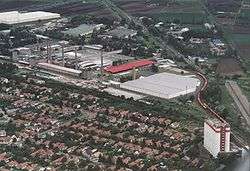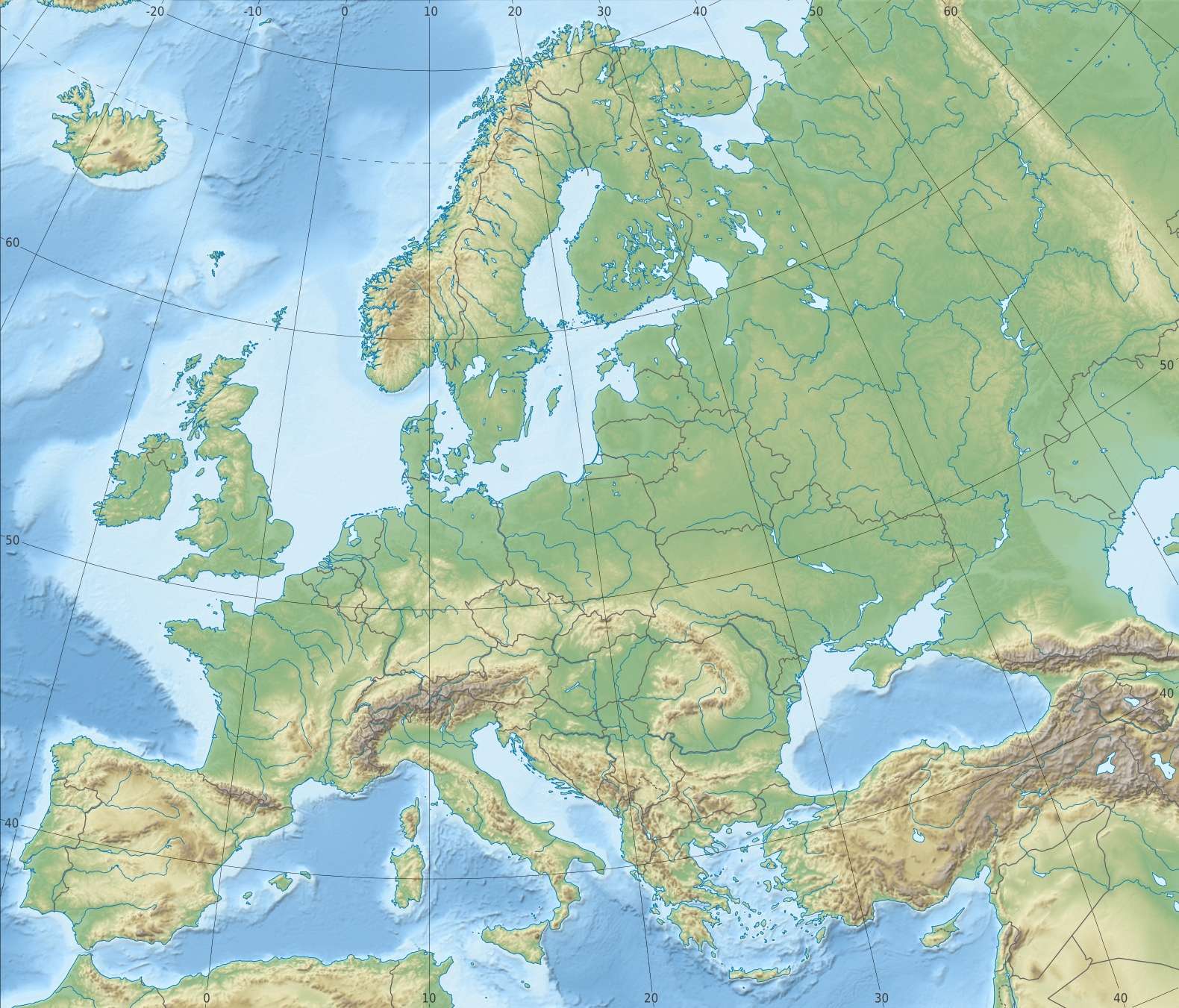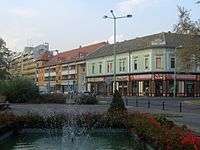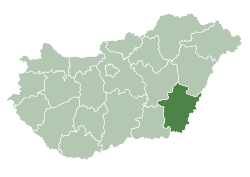Orosháza
Orosháza is a city situated in the westernmost part of Békés county, Hungary, on the Békés ridge bordered by the rivers Maros and Körös. Orosháza is an important cultural, educational and recreational centre of the region.
Orosháza | |
|---|---|
 Aerial view a part of the town with the Glass Factory | |
 Flag  Coat of arms | |
 Orosháza  Orosháza | |
| Coordinates: 46°34′N 20°40′E | |
| Country | Hungary |
| County | Békés |
| District | Orosháza |
| Area | |
| • Total | 202.22 km2 (78.08 sq mi) |
| Population (2013) | |
| • Total | 28,888 |
| • Density | 146.52/km2 (379.5/sq mi) |
| Time zone | UTC+1 (CET) |
| • Summer (DST) | UTC+2 (CEST) |
| Postal code | 5900, 5903, 5911, 5931 |
| Area code | (+36) 68 |
| Website | www |
Main sights
The city's main attractions are the Szántó Kovács János Museum, the Darvas József Literary Memorial House, and the Town Art Gallery. The only museum in the country devoted to water wells is found in Orosháza. At the Rágyánszky Arboretum, more than 2000 plant species in 6000 varieties can be seen.[1]
The Lutheran church, was built between 1777 and 1830 in late Baroque style. It is located in the centre of the town. The bell carried by the first settlers, who migrated from Zomba, is kept in front of the altar of the church.
A number of cultural and entertaining programmes are organised in the town every year.
Notable residents
- The cantor Marcel Lorand was born in the city in 1912.[2] He learned music with Béla Bartók and became the cantor of the Synagogue de la Paix in Strasbourg, France, in 1964. He died in 1988.
- Júlia Goldman (b. 1974), was born in Oroshaza and is noted as an "outstanding writer" of fantasy and adventure.[3]
- Gyula Gömbös, prime minister of Hungary was made an honorary citizen of the city in 1932.
Gallery
 Aerial photograph of the glass factory
Aerial photograph of the glass factory View of downtown Orosháza
View of downtown Orosháza The Zombáról sign at the intersection of Zomba Street and Dózsa György Street
The Zombáról sign at the intersection of Zomba Street and Dózsa György Street.jpg) Monument of Kossuth
Monument of Kossuth_-_Orosh%C3%A1za%2C_D%C3%B3zsa_Gy%C3%B6rgy_utca.jpg) Monument of the Bloody First of May
Monument of the Bloody First of May._-_Orosh%C3%A1za%2C_Szabads%C3%A1g_t%C3%A9r._Legnagyobbfalu.jpg) Monument of the "Biggest Hungarian Village"
Monument of the "Biggest Hungarian Village"
International relations
Twin towns – sister cities
Orosháza is twinned with:
References
- Rágyánszky Arboretum, Oroshaza
- Péter Tick, "A Brief History of Hungarian Fantasy", trans. by Csilla Kleinheincz, Roham Magazine No. 3, 2006; posted at The World SF Blog, 23 March 2011
External links
| Wikimedia Commons has media related to Orosháza. |
- Official website in Hungarian
- Orosháza at funiq.hu

